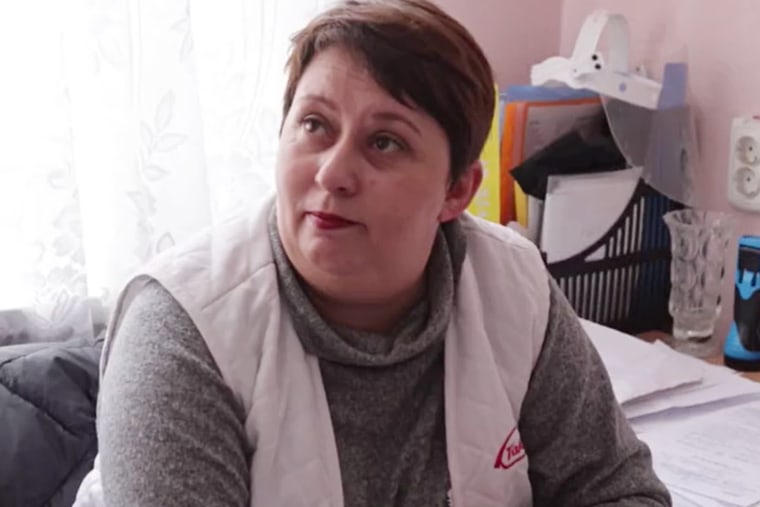[ad_1]
BAKHMUT, Ukraine — Surrounded on three sides, this eastern Ukrainian city has held out for months in bloody defiance against invading forces, Russian shells pounding day and night against streets coated with snow and rubble.
But, as the Kremlin’s troops advance here and threaten a major offensive across the war’s front lines, gunfire could be heard on a recent visit while the few thousand remaining locals sheltered in basements, stubbornly refusing to leave what remains of their homes.
“Bakhmut holds” is a patriotic battle-cry heard across the country, cementing the city as a symbol of national resistance.
And it still holds, for now.
‘Death is not an option’
The long-awaited spring offensive from Russia’s military is expected in the coming weeks — if it hasn’t already begun. Analysts have warned that Moscow’s forces, pushing for a high-profile victory to coincide with the Feb. 24 anniversary of the invasion, could finally be on the brink of taking the city.
The people of Bakhmut are all too familiar with the most intense fighting of the war, with many living in shelters for as long as six months. Their resolve and determination holds firm.
Olena Molchanova, 40, is one of three doctors caring for the few thousand people who stayed behind from an estimated pre-war population of around 80,000. She lives with her husband in the basement under her clinic, where she works seven days a week, from morning to evening. Their 18-year-old daughter has fled to the relative safety of the capital, Kyiv.
Of the three patients to visit during NBC News’ trip, two were registering deaths. This is an everyday reality, she said. But she won’t leave.
“I’m here because people still here need medical help, they need treatment. How can I leave them?” she said. “Death is not an option for me…. I don’t want to die, I have reason to live, I have a job to do.”

There is only one highway still under Ukrainian control here.
The road dips into a snow-covered valley and is clearly visible to Russian positions on nearby hilltops. “This part is dangerous,” NBC News’ Ukrainian military escort said. “We must go fast.”
Apartment blocks, offices, schools, shops and entire streets lie in ruins. If Russia does seize this city, it will be taking control of a place that is depleted and largely destroyed.
Battles rage for the town of Vuhledar, also in the Donetsk region, and increasingly in the neighboring Luhansk region. Together the two areas comprise the eastern Donbas, a huge swathe of the country famed for its industrial output and which Russian President Vladimir Putin appears intent on seizing to match his declared annexation.
The Wagner Group of mercenaries led by Putin ally Yevgeny Prigozhin was involved in taking the nearby mining town of Soledar in January, and has helped lead the assault on Bakhmut with waves of ex-convicts thrown at Ukrainian lines. Prigozhin has been eager to claim credit for the gains, in what many experts interpreted as part of a growing internal power struggle.
Russian Defense Minister Sergei Shoigu said in a news conference Tuesday that his forces “were successfully developing operations” near Bakhmut.
A map produced by the Institute for the Study of War, a Washington-based think tank, showed Russian forces at least claim to hold significant land to the south and east of the city, which they plan to connect to the large swathes of eastern and southern Ukraine already held by Moscow.
[ad_2]
Source link
